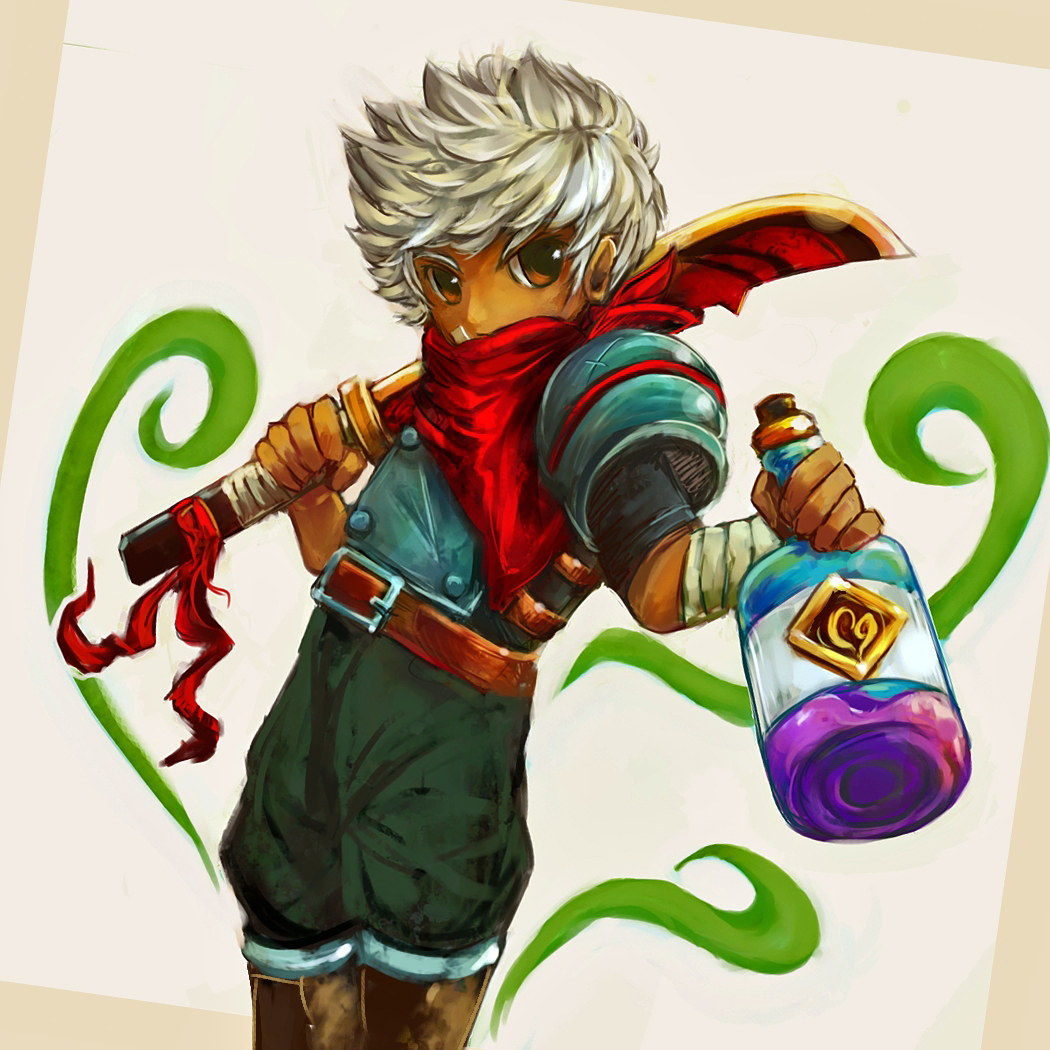

It is this logical conclusion, the Calamity, where we first watch a Kid wake up on a rock in the sky. It's hopefully a revelation to nobody that Bastion functions almost perfectly as an allegory of colonialism and xenophobia manifest into a tragic logical conclusion. Indeed, upon reflection, I've concluded that Bastion is better for its lack of end boss because I feel like questions of nonviolence and reclamation are kind of the underlying themes of the game. And in this regard, I had such overwhelming emotional satisfaction that it took me seven years to realize there technically wasn't even a final battle to this game. It's maybe fun to speculate about what Supergiant intended with this end sequence, but I also don't particularly care about authorial intent - I only care about how this game makes players feel. What this means is that avoiding the implementation of a final boss is, whether intentional or not, a subversion of regular tropes within the combat-heavy genre that Bastion's a part of. The lack of End Boss is particularly interesting in Bastion because the game does have a few bosses such as Queen Anne, proving that the game mechanics are capable of allowing traditional boss fights to take place. But somehow, walking around with a mopey boy produces an equally-or-more satisfying ending than a big old fight. At least that's more in line with standard RPGs and while more of a brawl than a final boss, it still feels appropriately exciting.
#Bastion main character trial
How in the world does the game manage to make a satisfying conclusion without a cumulative fight, a big test of the hero's skills, a final trial that makes the player's heart rush with anxiousness and energy? At least if you choose to abandon your friend in favour of your war machine, you can finish your imperialist assault against the nation your country tried to eradicate. The climax of the game is as follows: The Kid may utilize a battering ram to obliterate the remaining Ura people and escape, or the Kid may pick up Zulf and carry him home.ĭid you ever notice that if you choose to save Zulf, Bastion doesn't have a final boss fight? I kind of felt like it did because of how the game seemed to easily carry the expected cadence of rising action and crescendo end, but turns out the climax of the game is just you carrying a guy. The Kid tracks down Zulf to his Ura homeland where the remaining Ura people had beaten Zulf unconscious for leading the Kid (and his destructiveness) to their homeland.

Zulf sabotages the Bastion and flees in response.

(The Caelondians and the Ura used to be at war, but that’s all in the past now.)Įventually, everyone finds out that the Calamity was caused by Caelondians who wanted to engineer a means to murder all Ura. While on this journey, the Kid finds and befriends two survivors, Ura folk named Zulf and Zia. Under his guidance the Kid sets out to collect power cores and restore power to the Bastion (which has the ability to "restore everything"). He makes his way to the Bastion - where everyone agreed to go in case of trouble - and finds one other survivor, a fellow Caelondian named Rucks. A Calamity had obliterated the world, and only floating scraps of land remain. One day, a Kid wakes up to find himself floating on a rock in the sky.


 0 kommentar(er)
0 kommentar(er)
